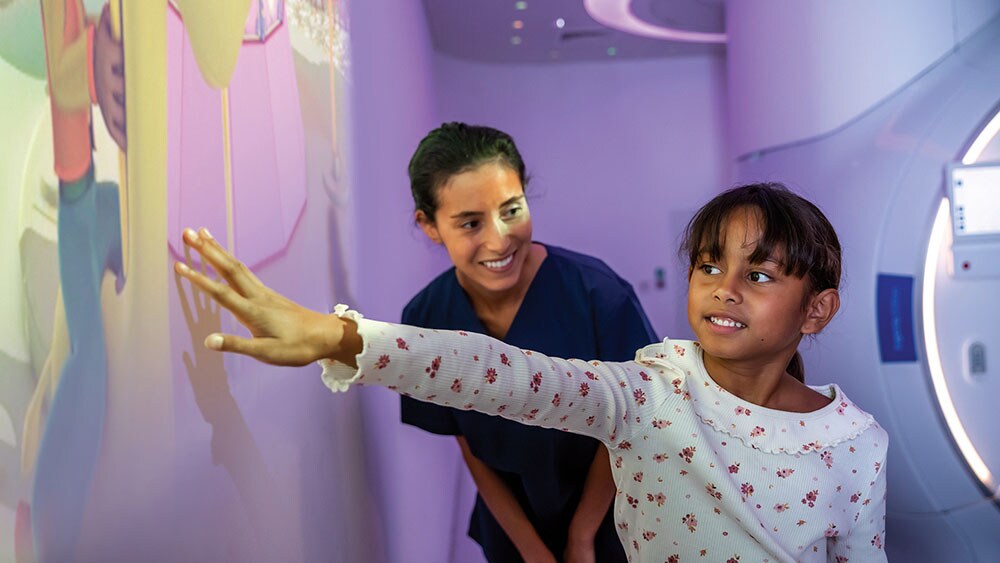Our 10 most-read perspectives on the future of healthcare in 2022
Dec 07, 2022 - Reading time 3-5 minutes
For healthcare providers, 2022 was a year marked by growing staffing challenges, increasing financial pressures, and rising calls for improving health equity after the pandemic exposed and exacerbated long-standing health disparities. At the same time, there was a growing realization that in order to take better care of people, we need to take better care of the planet as well. In this compilation, we bring together our most-read perspectives of the year – showcasing how smart digital innovations can support more efficient, inclusive, and sustainable healthcare.

1. AI in healthcare: four focus areas to promote wider clinical adoption
Despite a wealth of AI innovation in healthcare, clinical adoption is lagging behind – for reasons that extend well beyond the technology itself. How can we drive adoption of AI in healthcare at scale to fully deliver on its promise for patients and healthcare professionals? Learn more from Henk van Houten, Chief Technology Officer at Philips, and Tina Manoharan, who leads our Global Data Science & AI Center of Excellence.
2. How can we take the carbon out of healthcare?
The healthcare sector is one of the world’s biggest sources of carbon emissions. Fortunately, there are multiple ways to reduce healthcare’s carbon footprint. Discover how in this article from Kees Wesdorp, Chief Business Leader Precision Diagnosis at Philips, and Robert Metzke, our Global Head of Sustainability.
3. Why the future of healthcare is (mostly) in the cloud
Healthcare leaders are embracing the benefits of the cloud and software as a service (SaaS). Yet moving to the cloud is more than just a technology transformation. It’s an organizational transformation. Read more from Philips Chief Technology Officer Henk van Houten and our Global Head of SaaS development, Kalavathi Gv.
4. Six impact drivers for sustainable healthcare
Healthcare leaders increasingly recognize the health implications of climate change and the importance of sustainability to achieve population health objectives. This article outlines six strategies that health systems can adopt now to make healthcare more sustainable – including more efficient energy consumption, adoption of circular models, and implementation of smart digital solutions.

5. Seven key success factors for digital transformation in healthcare
For digital transformation in healthcare to move from isolated pockets of innovation to an integrated enterprise effort, it needs to address people and processes as much as technology. In this article, we discuss seven critical success factors that can make or break digital transformation.
6. Insights at scale: a how-to for healthcare leaders
Healthcare leaders are investing in AI and predictive solutions to power a shift from data overload to insights at scale. Shez Partovi, our Chief Medical, Innovation & Strategy Officer, outlines how successful informatics leaders take a platform approach, prioritize partnerships with clinical experts, and break down organizational objectives into measurable and achievable steps.
7. Equitable access to care for mothers and children
Every day more than 800 women around the world die – about one woman every two minutes – from mostly preventable causes related to pregnancy and childbirth [1]. Marnix van Ginneken, Chief ESG & Legal Officer at Philips, shares comprehensive solutions for tackling barriers to equitable maternal health services that help ensure mothers and children around the world can access quality care.

8. What will tomorrow’s smart hospital look like?
Chief Technology Officer Henk van Houten and Chief Experience Design Officer Sean Carney outline how smart hospitals can improve operational efficiencies, deliver clinical excellence, and create seamless patient experiences within and beyond hospital walls.
9. Staff burnout in healthcare is growing: can AI help ease the burden?
After a prolonged battle with the COVID-19 pandemic, healthcare providers are now contending with ever more acute staff shortages and an increasingly exhausted workforce. Can AI be part of the solution by helping healthcare professionals reclaim the joy in their work?
10. How can we innovate for more equitable cardiovascular care?
As the leading cause of deaths globally, cardiovascular disease kills an estimated 17.9 million people each year – three quarters of which occur in low-and middle-income countries where people often lack access to effective and equitable healthcare services [2]. How can we design technologies to combat these health disparities and better ensure people everywhere can access the vital care they need?
References
[1] UNFPA, Maternal health, May 2022.
[2] World Health Organization. https://www.who.int/news-room/fact-sheets/detail/cardiovascular-diseases-(cvds)
Stay up to date and subscribe
Sign up to stay informed and receive information on healthcare innovation, straight to your inbox








